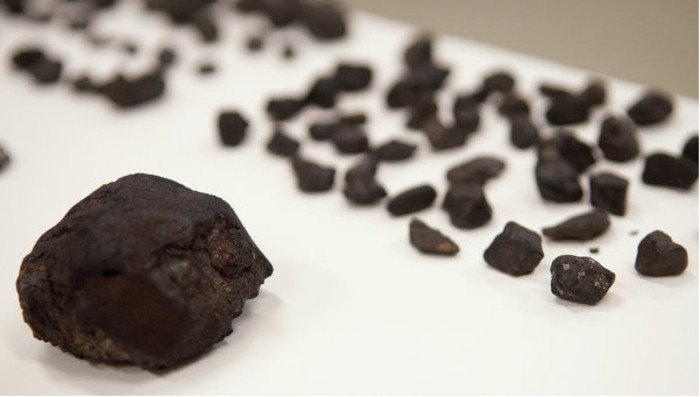CHELYABINSK, Russia, Oct. 7 (UPI) -- The meteorite that exploded over a Russian city in February was around 4.56 billion years old, as old as the Solar System itself, a scientist says.
Mikhail Marov of the Vernadsky Institute of Geochemistry and Analytical Chemistry said the age of the so-called Chelyabinsk meteor was determined by a technique called radiometric dating, observing the amount of radioactive isotopes and their decay byproducts in the meteorite.















